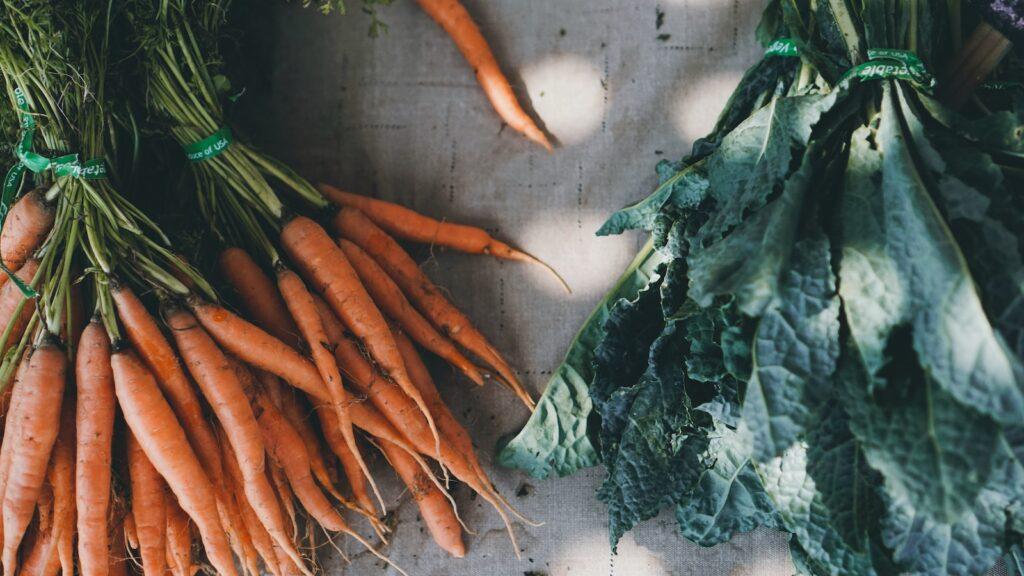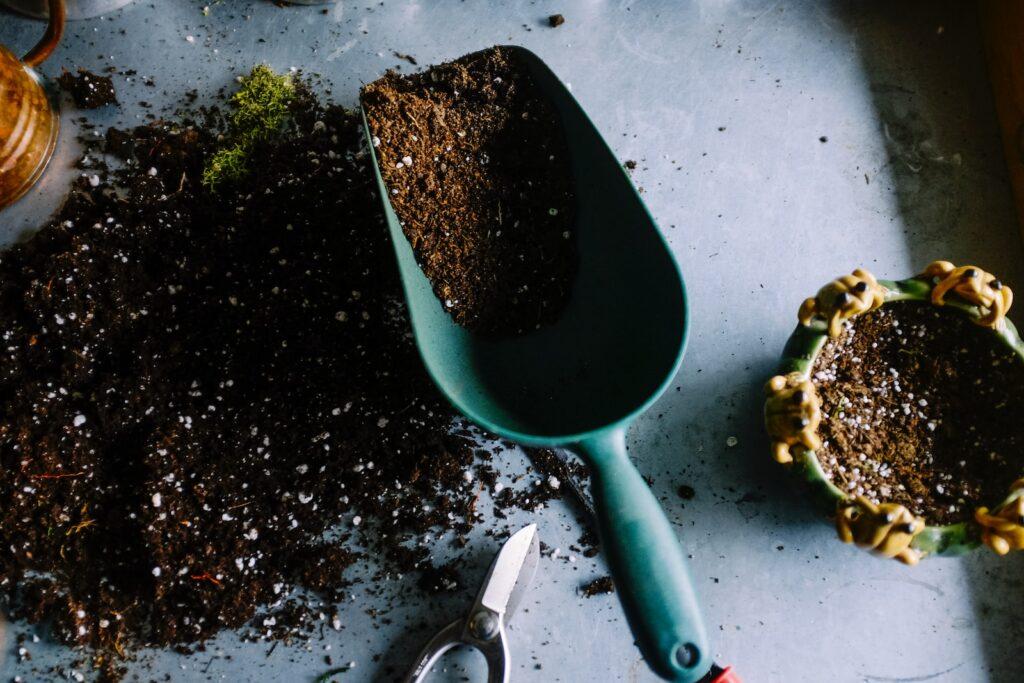Rated & Reviewed is reader-supported. When you buy through links on our site, we may earn an affiliate commission. Learn more.
Are you interested in growing a healthy garden while also contributing to the environment? Well, you’re in luck! Organic gardening is becoming increasingly popular as people look for ways to grow their own produce and contribute to a healthier planet. In this post, we will detail the benefits of using organic garden supplies and provide recommendations for the best organic fertilizers, pesticides, and soil amendments.

Types of Organic Garden Supplies
Organic gardening is all about using natural products to help your plants thrive. Organic garden supplies include organic fertilizers, organic pesticides, and soil amendments. Let’s dive into each of these types of supplies to understand their benefits and what to look for.
Organic Fertilizers
Organic fertilizers are made from natural materials such as bone meal, fish emulsion, and compost. They help to improve soil structure and provide nutrients to your plants. The best thing about organic fertilizers is that they release nutrients slowly, which means that plants get a steady supply of nutrients over time.
There are many different types of organic fertilizers available, including seaweed fertilizer, blood meal, and worm castings. When choosing a fertilizer, consider the nutrient needs of your plants and the composition of your soil.
Organic Pesticides
Organic pesticides are made from natural materials such as essential oils, plant extracts, and minerals. They are used to control pests that can harm your plants. The benefit of using organic pesticides is that they are not harmful to the environment or beneficial insects.
Examples of organic pesticides include neem oil, pyrethrin, and diatomaceous earth. When choosing a pesticide, consider the type of pest you are dealing with and the safety of the product.
Soil Amendments
Soil amendments are materials added to soil to improve its texture and structure. They can also help to increase the availability of nutrients to plants. Common soil amendments include compost, vermiculite, and perlite.
The best thing about soil amendments is that they can help to improve the fertility of your soil over time. When choosing a soil amendment, consider the pH level of your soil and the nutrient needs of your plants.
In the next section, we will delve into the benefits of using organic garden supplies.
Benefits of Using Organic Garden Supplies
Now that we’ve covered the types of organic garden supplies, let’s take a closer look at the benefits of using them.
Health Benefits
One of the main benefits of using organic garden supplies is that they are free from harmful chemicals. Using synthetic fertilizers and pesticides can expose you to toxins that can be harmful to your health. Organic garden supplies, on the other hand, are made from natural materials, making them safer for you and your family.
Organic garden supplies can also provide you with nutrient-dense produce. When you use organic fertilizers and soil amendments, you are enriching the soil with essential nutrients that your plants need to grow. As a result, your produce will be packed with vitamins and minerals that are important for your health.
Environmental Benefits
Using organic garden supplies can also benefit the environment. Synthetic fertilizers and pesticides can harm beneficial insects and microorganisms that are important for a healthy ecosystem. Organic garden supplies, on the other hand, are safer for the environment and can help to preserve the natural balance of your garden.
Organic garden supplies can also help to reduce pollution. Synthetic fertilizers and pesticides can leach into groundwater and harm aquatic life. Organic garden supplies, on the other hand, are biodegradable and do not contribute to pollution.
Economic Benefits
Using organic garden supplies can also be cost-effective in the long run. While organic supplies may be more expensive upfront, they can help to improve the health of your soil, reducing the need for future applications. Additionally, when you grow your own produce using organic garden supplies, you can save money on grocery bills.
Growing your own produce using organic garden supplies can also provide you with peace of mind. You’ll know exactly what is in your food and can rest assured that it is safe for consumption.
In the next section, we’ll explore how to use organic garden supplies to get the most out of your garden.
How to Use Organic Garden Supplies
Using organic garden supplies is easy and can help you to grow a bountiful garden. Here are some tips for using organic fertilizers, pesticides, and soil amendments.
Choosing the Right Supplies
When choosing organic garden supplies, it’s important to consider the needs of your garden. Consider the type of plants you are growing and the composition of your soil. For example, if you have sandy soil, you may need to choose a soil amendment that helps to retain moisture.
Proper Application of Supplies
When applying organic garden supplies, it’s important to follow the instructions carefully. Consider the timing of your application, the quantity of product to use, and the method of application. For example, some fertilizers may need to be applied every few weeks, while others may only need to be applied once per season.
Maintenance of Organic Garden
Maintaining an organic garden involves regular care and attention. Soil testing can help you to determine the nutrient needs of your plants and adjust your application of organic supplies accordingly. Composting can also help to improve soil health over time, as can crop rotation.
By choosing the right supplies, applying them properly, and maintaining your garden, you can reap the benefits of organic gardening and enjoy a healthy, bountiful harvest.
In the next section, we’ll answer some common questions about organic gardening and organic garden supplies.
Related Articles
FAQs
What is organic gardening?
Organic gardening is a form of gardening that uses natural materials and techniques to grow plants without the use of synthetic fertilizers and pesticides. Organic gardeners use products such as compost, organic fertilizers, and organic pesticides to enrich the soil and control pests.
What are the benefits of using organic garden supplies?
Using organic garden supplies can provide a range of benefits, including improved soil health, healthier plants, and reduced environmental impact. Organic garden supplies are also safer for you and your family and can result in nutrient-dense produce.
What are the best organic fertilizers for gardens?
The best organic fertilizers for gardens will vary depending on the needs of your plants and your soil composition. However, some popular options include compost, worm castings, and seaweed fertilizer.
What are the best organic pesticides for gardens?
The best organic pesticides for gardens will depend on the type of pest you are dealing with. Some popular options include neem oil, pyrethrin, and diatomaceous earth.
What are the best soil amendments for gardens?
The best soil amendments for gardens will depend on the composition of your soil and the needs of your plants. Some popular options include compost, vermiculite, and perlite.
Conclusion
In conclusion, using organic garden supplies can provide a range of benefits for your garden, your health, and the environment. By choosing the right supplies, applying them properly, and maintaining your garden, you can enjoy a bountiful harvest of fresh, nutrient-dense produce. So why not try organic gardening today and reap the rewards of a healthier, more sustainable approach to gardening?
Amazon and the Amazon logo are trademarks of Amazon.com, Inc, or its affiliates.


